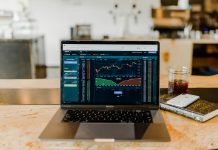Europe opens the week on a cautiously optimistic footing as inflation continues to ease, energy pressures moderate and political risk stabilises—at least temporarily—across several major economies. Yet beneath the surface, the region’s recovery remains uneven. Industrial momentum is fragile, consumer confidence is mixed, and geopolitical uncertainties continue to shape corporate strategy and investor positioning. This morning’s brief brings together the most important developments shaping Europe’s economic, political and corporate landscape.
Markets: Softer Yields, Steady Equities, and an Eye on Central Banks
European markets begin the session quietly firmer as euro-area bond yields continue their gradual decline. The German 10-year Bund is hovering near 2.70%, reflecting growing confidence that the European Central Bank may begin easing policy as soon as early 2026. France’s 10-year OAT also edged lower, easing financing pressures for businesses and governments alike.
Equity markets across the region opened mildly positive, supported by financials, energy names and selective strength in industrials. Technology stocks remain sensitive to U.S. rate expectations, with traders positioning cautiously ahead of a heavy schedule of U.S. macro data and Federal Reserve communication later this week. European investors are particularly alert to signals from Washington as the transatlantic monetary cycle nears an inflection point.
The euro remains under pressure after slipping against the dollar earlier in the week. Softer inflation data from Italy and France, combined with limited catalysts for upward momentum, have kept the single currency subdued.
France: Investment Strength Despite Political Noise
Paris remains a focal point for investors following the French finance ministry’s announcement of €9.2 billion in new corporate investment commitments. Foreign direct investment remains a pillar of France’s economic model, and the latest figures reinforce the country’s appeal despite persistent political turbulence and fiscal constraints.
The sectors drawing the most capital include advanced manufacturing, pharmaceuticals, clean energy and digital infrastructure. These are areas where France’s industrial policy is particularly active, offering targeted incentives and regulatory clarity. While President Macron faces ongoing parliamentary pressures and public discontent over spending reforms, France’s fundamentals—skills, logistics, market scale—continue to anchor investor confidence.
Germany: Industrial Outlook Mixed, Policy Debates Intensify
Germany enters the week balancing fragile industrial data against modest improvements in export sentiment. Surveys show early signs of stability in automotive and machinery sectors, though chemicals and energy-intensive industries remain under strain. Berlin’s coalition continues to debate fiscal flexibility as pressure grows to support reindustrialisation efforts.
The government’s industrial competitiveness package—which includes subsidies, tax credits and targeted support for energy transition projects—is under review as parties disagree on spending levels and climate commitments. Political fragmentation remains a key drag on sentiment, and markets will watch carefully for progress ahead of next month’s budget negotiations.
Italy & Spain: Cooling Inflation Supports Domestic Demand
Inflation in Italy eased to 1.2%, the lowest in a year, reinforcing a wider cooling trend across southern Europe. Combined with better-than-expected household spending data, Italian consumer-facing businesses may benefit from a more stable domestic environment heading into the winter.
Spain continues to perform better than the euro-area average, with strong tourism revenues, improving labour-market performance and resilient services activity. Madrid is pushing for greater EU-level alignment on digital and green-investment frameworks—areas where Spain has emerged as a vocal policy driver.
EU Policy & Regulation: Big Week for Capital Markets and AI Governance
Brussels enters a significant policy week as lawmakers meet to discuss progress on capital-markets reform, AI regulation and energy-security coordination. The long-delayed Capital Markets Union remains a cornerstone of Europe’s long-term competitiveness strategy, but political divisions persist around supervisory alignment and investor-protection rules.
The EU is also advancing work on AI governance, with pressure increasing for clarity on usage standards, data transparency and sector-specific obligations. The Commission aims to finalise key frameworks before the end of the political cycle, creating more predictable conditions for European technology firms and international investors.
Energy & Geopolitics: Stable Gas Market, Rising Strategic Risks
Europe begins the colder months with significantly improved gas inventories and lower wholesale prices compared with last winter. LNG imports from the U.S. and Qatar remain robust, and renewable deployment continues to expand. However, geopolitical risks—particularly in the Middle East and the Black Sea—pose ongoing uncertainty for shipping, insurance and supply routes.
The EU is preparing contingency measures for potential disruptions, with several member states accelerating storage plans and exploring additional long-term contracts. Energy-intensive industries remain cautious, though sentiment has improved markedly compared to late 2023.
Corporate Europe: M&A Reawakening, Strategic Realignment
The continent’s corporate landscape shows early signs of renewed deal activity. Private equity firms are selectively returning to the market, targeting mid-cap industrials, renewable-energy assets and health-tech companies. Large corporates are increasingly focused on portfolio realignment and capital efficiency, shedding non-core assets while directing investment toward automation, AI integration and sustainability.
Banks in Italy and Spain continue to report improved balance-sheet health, while Nordic financial institutions are doubling down on risk-management strategies amid fluctuating real-estate valuations. In the consumer sector, premium brands remain resilient, while mass-market retailers face pressure from subdued household confidence.
Outlook: Cautious Optimism with a Focus on Fundamentals
Across the continent, Europe enters the week with a mix of stabilising indicators and persistent challenges. Inflation is easing, investment momentum is returning, and political risk—though still high—is more predictable than earlier in the year. Yet growth remains patchy and dependent on policy coordination, global demand and the pace of monetary easing.
For investors and businesses alike, the theme remains the same: navigating uncertainty through strategic clarity, cost discipline and careful attention to Europe’s shifting geopolitical and regulatory landscape.







































